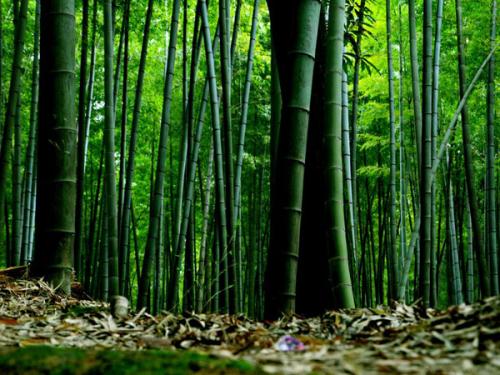How are environmentally friendly bamboo products?

Bamboo products are eco-friendly, as most bamboo fabrics are unless they are chemically processed. Bamboo as a plant is naturally insect-resistant, 100% biodegradable, antifungal, antibacterial, and returns to its adult size in 3 to 5 years.
While bamboo products are overall environmentally friendly, they still have some nuances. Depending on the type of products you buy and from which manufacturer, you can help the environment in a big way or not. If you want to make sure that you are buying the right product, I suggest you read on.
Bamboo products are mostly environmentally friendly.
Bamboo has been gaining a lot of attention recently due to its being an environmentally friendly alternative to other types of materials. One of the best features of bamboo is that it is highly renewable and durable compared to cotton, wood, and similar plants. However, the kind of product you buy depends on whether you are made of bamboo or not, you can help or harm the environment.
Bamboo has many amazing properties that stand out compared to other materials:
• Naturally insect-resistant, meaning that no pesticides are needed to grow it.
• Helps in rebuilding the soil
• antibacterial
• antifungal
• Requires much less water than similar plants (eg, cotton)
• Plant size increases upto 3 to 5 years
• Absorbs 5 times more CO2 than other similar plants
• Produces 35% more O2 than other similar plants
These are all very impressive, positive qualities of a plant that we rarely use in our everyday lives. Do you think we have more products in the world that use this magical plant, so that we can leave a better effect on this beautiful green earth? Especially because I use it for my household items. However, there are some downsides to using bamboo in some cases.
Apart from the extremely positive reasons for bamboo products themselves from environmentally friendly brands, there are some problems with some product use cases. It is primarily a process filled with chemicals, with the conversion of bamboo into a fabric. If you keep bamboo in its natural form, you do not know how difficult it can be. Well, a soft fabric can be a problem to compete with the likes of cotton.
Chemically processed bamboo that is converted into cloth usually comes in the form of viscose rayon. To produce bamboo cloth, the material must undergo an intense chemical process that uses harsh chemicals such as sulfuric acid and sodium hydroxide. Not exactly eco-friendly at my asking.
The use of these chemicals is extremely harmful to the environment and people in general. Not only do they negatively affect the quality of a one-time natural material, but chemical runoff from whoever makes the cloth is harmful to the local environment. This is a big no-no.
When it comes to bamboo products that are still in solid form, you are guaranteed a durable, environmentally friendly product. Serve bamboo, trays, cups, bowls, utensils, containers and almost anything around the house. However, when considering buying bamboo clothes such as towels, blankets, and clothes, you should see if the manufacturer is green and avoids the use of harsh chemicals. This can be difficult based on my experience, so I just decided to avoid buying any bamboo fabric.
The use of bamboo is not only environmentally friendly but one of the strongest plants on earth. The amount of material required to make a strong product can be much less than other materials such as wood. So, the next time you drop a plate or tuck your tray against the wall, the bamboo will probably be able to handle the hit.
Bamboo has a strong, natural fiber that is superior to similar materials, especially wood. It has a wonderful quality, which allows it to be very flexible due to its naturally long fibers, so the wood does not break easily to form in different shapes. This can be beneficial because then all types of products can be made, which would not be possible with other similar materials.
Bamboo is an environmentally friendly solution for all types of scenarios when it comes to household items and construction purposes. Ideally, the plant would be growing everywhere so that everyone could have a chance to use it in their local setting.
Bamboo is produced in many regions around the world, including Southeast Asia, Central or South America, and Africa. However, the largest producer of bamboo in China, which should come as no surprise.
The thing is, China is the only country in the world that has enough bamboo to mass-produce. While bamboo has always been a major material for China, it has been more popular in the last few years due to its commercial success. It has built several factories around the region that produce all types of bamboo products and has been cash-cropping for many years.
While bamboo is an environmentally friendly product overall, it will be beneficial for the environment if developed in many places around the world. It would be great if countries were encouraged to develop something in their local communities.
Post Your Ad Here
Comments